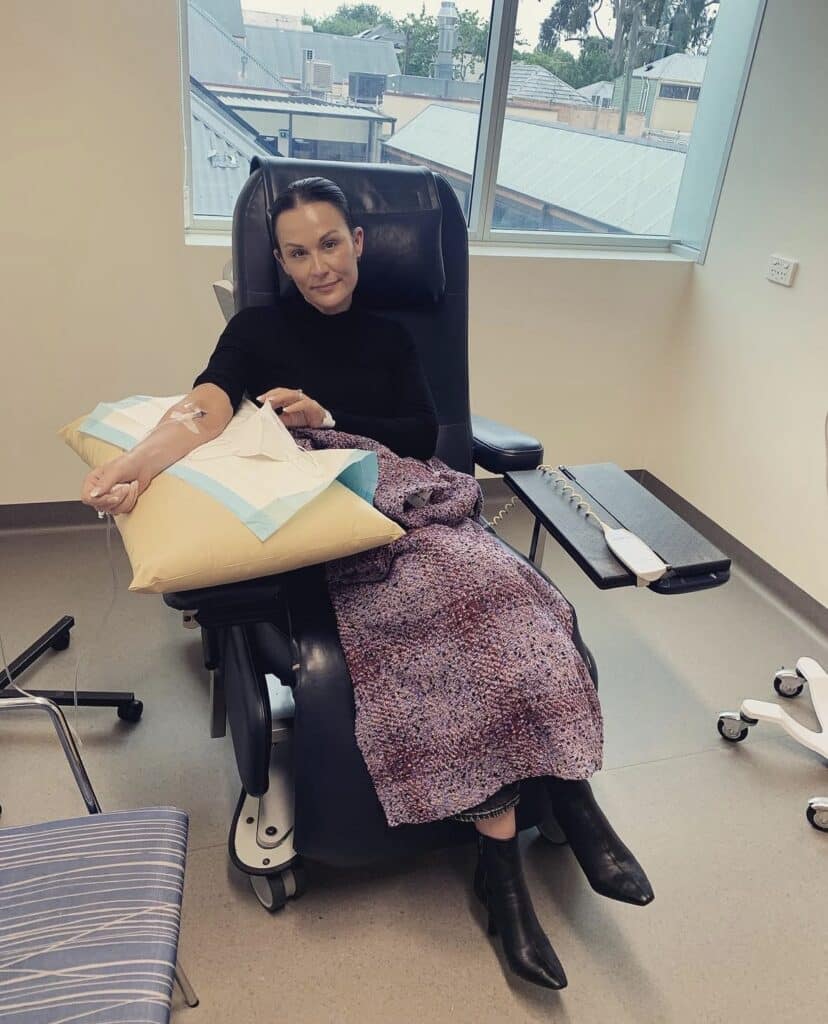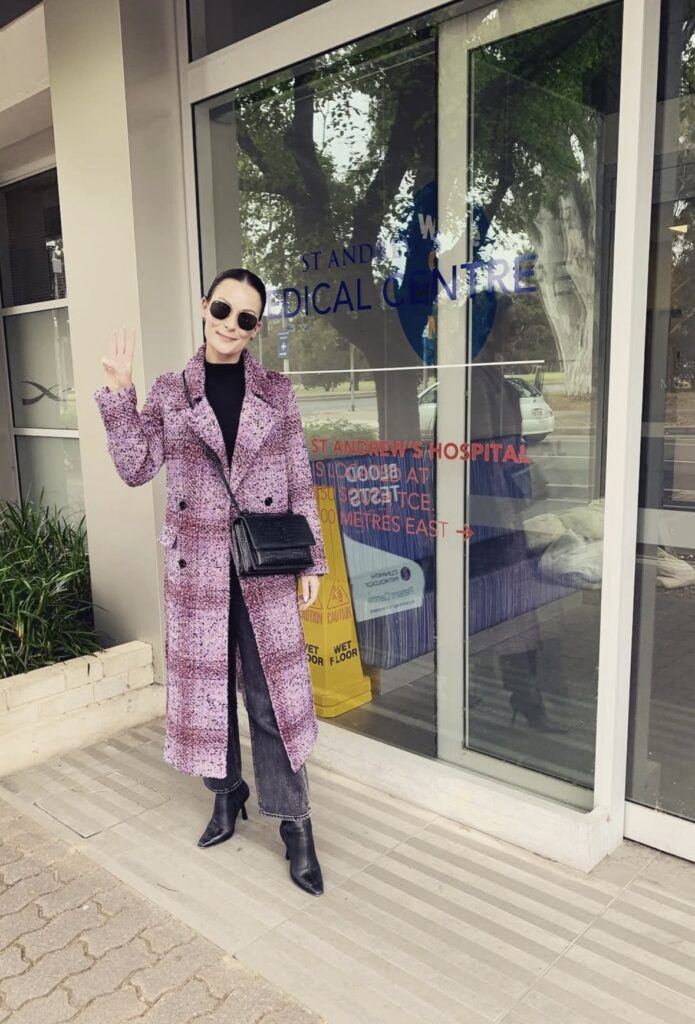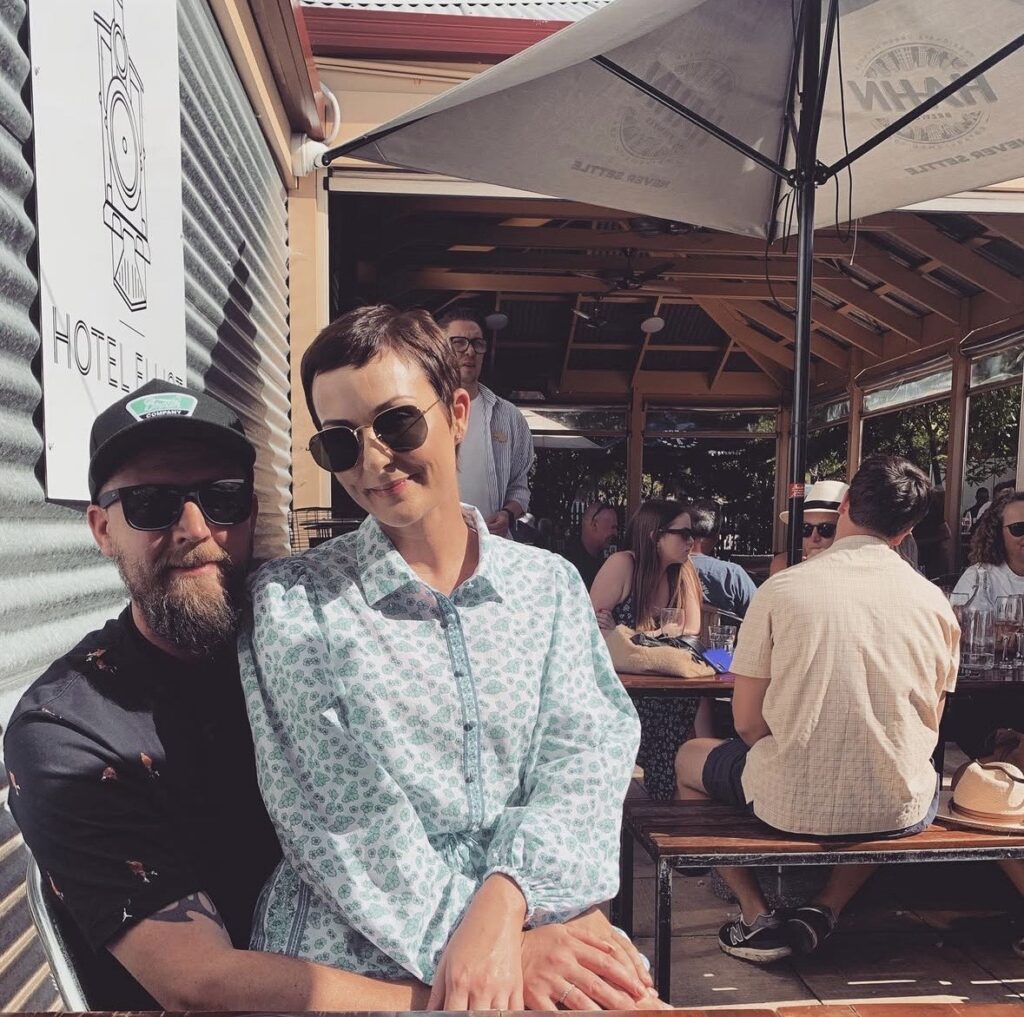While breast cancer treatments save lives, patients can sometimes be left to navigate life-changing side effects, both physically and mentally.
Katrina O’Doherty experienced this first-hand after she was diagnosed with node-positive breast cancer in February 2022 at the age of 37.
“When I went for my first appointment with my oncologist, he went through the list of potential side effects and he also provided me two different documents on the type of chemotherapy that I would be receiving, which sort of articulated those side effects,” O’Doherty shares with Women’s Agenda.

Fatigue, nausea, joint pain and headaches were just some of the symptoms that O’Doherty felt during and after her five months of neoadjuvant chemotherapy, a double mastectomy with full reconstruction, and five weeks of radiotherapy.
O’Doherty says she experienced “numbness” in her fingers, and her medical team ended up reducing her dose of chemotherapy to reduce her risk of neuropathy. She also experienced perimenopause that’s now turned to menopause and says she hasn’t had a menstrual cycle for three years since.
She’s not alone with these experiences, as the most common long-term side effects that breast cancer patients can get from treatment include anxiety, bone density loss, fertility issues, fatigue, joint pain, lymphoedema, memory problems, menopausal symptoms, sleep problems and weight changes.
“When somebody’s giving you a list of side effects, you sort of sit and think, ‘I can do this’ and ‘yep, that’s fine’,” she says, highlighting the resilience many cancer patients exhibit.
“But when you’re in it, you’re just so focused on getting to the end. It’s actually not until post-hospital treatment that you look back and realise how actually tough that journey was.”

Seeking support
While the cancer journey is filled with ups and downs, a patient’s medical team can be a vital support for both their physical and emotional wellbeing.
“You have to have a good relationship with your team to begin with because when you’re so vulnerable and sick, which I was, it can be very difficult to actually turn up to an appointment,” O’Doherty says, adding that “when somebody asks how you are”, it’s important for patients to feel comfortable being honest about the side effects they’re feeling.
Thankfully, O’Doherty was referred by her oncologist to a psychologist during her cancer treatment, who encouraged her to write down a list of her symptoms.
“Brain fog, or chemo fog, like they say, is absolutely a real symptom and side effect,” says O’Doherty. “So, I would often write a little list, then go into appointments and say, ‘this is what has been going on’.”
“We would discuss it, and then we would discuss the options for me to mitigate some of the stuff that [the oncologist] prescribed to me or recommended for me.”
She says this added “a level of comfort” to everything that was going on during her treatment.
“So much was going into my body at the one time, and if you’re not your own biggest advocate, then I feel like patients could sort of slip through the cracks as far as side effects not being treated,” she says, adding that she was glad she and her team “were able to have those conversations pretty openly”.

Asking the important questions
At this point in time, O’Doherty is receiving long-term endocrine therapy, which includes daily exemestane, monthly Zoladex injections, and biannual Zometa infusions.
“I’ve definitely got long term side effects,” she says, explaining that the main effects include fatigue and pain in her back and shoulders from her double mastectomy.
Despite this, O’Doherty is driven to help other people going through similar breast cancer experiences.
In early 2025, she was appointed to the Breast Cancer Trials Consumer Advisory Panel, where she now works alongside experienced consumer advocates to ensure the patient voice is embedded in research design, trial development, and funding priorities
“I know so much more now through the advocacy work that I’m doing, particularly with Breast Cancer Trials, and also through connections with other women that I’ve met along the way,” O’Doherty says.

She’s volunteered with Breast Cancer Network Australia (BCNA), including contributing to the development of the My Journey app, a digital resource designed to help people understand and manage their treatment and symptoms.
O’Doherty has also recently applied for a position at BCNA’s Seat at the Table program which allows those with lived experience to work with clinicians, researchers, health service providers and policy makers across Australia to make sure consumer voices are at the heart of any decisions
Looking back at her journey thus far, O’Doherty says she would tell her younger self to not be afraid to slow down and ask the questions she needs answered.
“I would be telling my younger self, be brave and speak up more,” she says, adding that “if you’re not comfortable having [conversations] with someone in particular, have it with somebody else in your team, because you have such a large team around you.”
Join Breast Cancer Trials on Wednesday 24th September, from 5:00-6:30pm (AEST), for a free online Q&A, as our panel of experts discuss the side effects of breast cancer treatment and what researchers are doing about it. To register click here.

